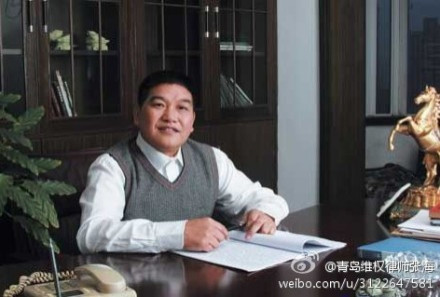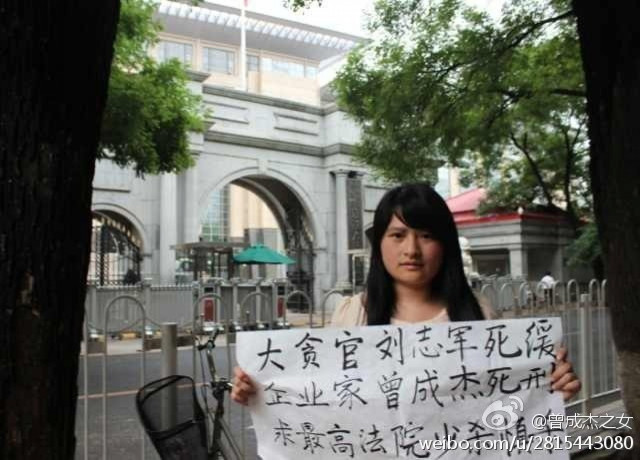China's Dubious Death Penalty Laws: 'China's Madoff' Zeng Chengjie Secretly Executed
While 150 years in prison is a severe sentence, the family of Bernie Madoff, the former stockbroker and financial investment adviser who ran the $65 billion Ponzi scheme that was the biggest financial fraud in history, can at least take comfort in knowing his trial and sentencing followed the law. Many in China are saying the same can’t be said for Zeng Chengjie, who was secretly executed for financial crimes Friday by lethal injection.

According to Zeng’s family, they were not notified of his execution ahead of time, as Chinese law mandates, and were not able to see his body before cremation. His family found out about his death two days later. Many online have expressed deep concern over the fairness of China’s executions, with Zeng’s case adding to the controversy. While most Chinese are still in favor of the death penalty, recent cases of similar white-collar crimes by officials suggest that the government rarely follows through with executions of party officials.
One popular Weibo commentator, Wang Xiaoshan, said the death penalty essentially does not exist for officials and has become another corruption tool in favor of the government. “Those in power have already abolished the death penalty for their own men. Please forget about dreams of using the death penalty to punish corrupt officials. Death penalty is for people like you and me.”
Wang’s point isn’t entirely unfounded. Former Railways Minister Liu Zhijun was given the death sentence last week for corruption for accepting bribes amounting to millions of dollars. His sentence, however, was suspended, which will likely mean he will serve a prison sentence and never face actual execution.
Zeng’s sentencing for white-collar crimes may sound harsh outside of China but is hardly surprising. China’s government is notorious for its usage of the death penalty, with annual deaths estimated by Amnesty International to be in the thousands. That number can’t be confirmed, because the state refuses to report official figures.

Zeng’s daughter, Zeng Shen, has taken to her Weibo account, a microblogging platform that is China’s most popular form of social media, vocally expressing her protest of her father’s trial and execution. According to Tea Leaf Nation, a news blog focused on Chinese new media, Shen says that her father was encouraged by the local government and even worked closely with it for his fundraising projects. Party members who had a hand in the investments were able to pull out first after catching wind of new policies that would affect investments in 2009, leaving Zeng accountable to the thousands of other ordinary investors.
Zeng Chengjie, dubbed China’s Madoff, was once a highly regarded businessman from central China’s Hunan province, acclaimed for being a self-made man, even called a “diligent, wise and conscientious man” by China’s state-run news. But the reality of his financial success turned out to be less of a rags-to-riches story, after being caught allegedly running a Madoff-like scheme that cheated more than 57,000 investors out of approximately 2.8 billion yuan ($460 million), of which more than half has been returned. Zeng was convicted of “illegal fundraising,” which is China’s catchall phrase for economic corruption and Ponzi scheming.
© Copyright IBTimes 2024. All rights reserved.






















